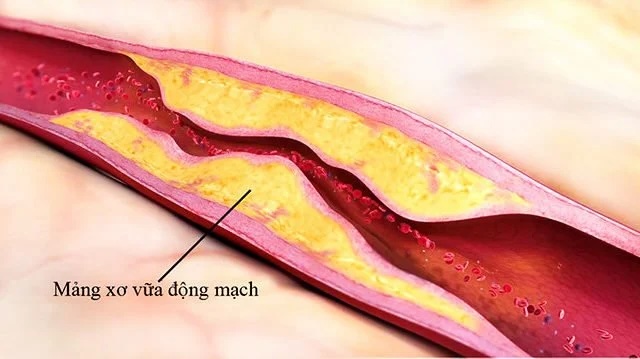Everyone desires a healthy and long life. It is commonly believed that longevity is determined by fate. However, research has shown that only about 15% of lifespan is determined by genetics, while the remaining 85% is influenced by our living environment and lifestyle. This means that even with good genetics, if we do not maintain a healthy lifestyle, our lifespan may not be as expected and vice versa.
There are many signs on the body that can indicate whether a person has the potential for a long life. However, people with the following “2 thick, 3 hard” characteristics often have a shorter lifespan. Even if only one of these signs is present, it indicates that the health is not in the best state and requires more attention to healthcare.
Short-lived people often have “2 thick” on their bodies
A thick neck and a large waistline are signs that your lifespan may be affected.
Thick waistline
The waistline plays an important role in assessing health and lifespan in both men and women. Even if you are not overweight or considered obese, if your waistline is too large, it can also hinder healthy aging and lifespan maintenance.
Studies in the United States have shown that people with a waistline exceeding 89cm have a 79% higher mortality rate than those with a waistline below 71cm. People with a large waistline face the risk of premature death from diseases such as cardiovascular, respiratory, and cancer, as well as fatty liver and other metabolic issues, compared to those with a smaller waistline. Health experts recommend that the waistline should not exceed 80cm. If you have a large waistline and accumulate excess fat, you should consider adjusting your diet and exercise to improve your health and prolong your life.

Thick neck
Many people worry that a thick neck only reduces their appearance without realizing that it is also a sign of poor health and a short lifespan.
A thick neck is often associated with overweight or obesity, with excess fat accumulating in the body, including the neck area. This increases the risk of developing cardiovascular and cerebral diseases, as well as metabolic disorders. These health issues can threaten life and shorten lifespan.
Excess fat around the neck not only affects aesthetics but can also put pressure on the airway, increasing the risk of sleep apnea, stroke, and depression. If the neck is abnormally large, it may also be a warning sign of many serious health conditions, including cancer, particularly thyroid and lymphoma-related issues.

“3 hard” commonly found in short-lived people
Do not ignore if you have the following 3 types of hardness, as they indicate health problems, premature aging, and reduced lifespan:
Arterial stiffness
The health of blood vessels plays a crucial role in determining our lifespan. Arterial calcification is becoming increasingly common and appears in younger people. It has become a silent but dangerous cause that destroys health from within.
The process of arterial calcification can begin as early as infancy. Depending on age, each person will have a different level of arterial stiffness. As we enter old age, our blood vessel system becomes fragile and more vulnerable to damage. This reduces the ability to control blood pressure, thereby increasing the risk of developing cardiovascular diseases. Unhealthy eating habits and an immoderate lifestyle can accelerate arterial stiffness, leading to reduced elasticity of blood vessels and affecting blood circulation. As a result, lifespan may be significantly reduced due to increased risk of dangerous diseases and rapid aging.

Hard stools
Frequent constipation, solid and difficult bowel movements lasting tens of minutes or more, can be a warning sign of poor health, and even related to a shorter lifespan. Hard stools are often associated with bad habits such as imbalanced diet, staying up late, alcohol consumption, prolonged sitting, and insufficient water intake.
As age increases, natural digestive function decreases; however, if you are young and often experience hard stools, it may be a sign of health problems such as metabolic disorders, poor digestion, or gastrointestinal ailments, causing premature aging and reduced lifespan. Prolonged constipation not only increases the risk of toxin accumulation in the body but can also lead to certain types of cancer. The risk of cardiovascular disease, cerebrovascular disease, and sudden death is also higher in people who are frequently constipated.
Hard liver
The liver plays a central role in many vital processes of the body, from filtering and eliminating toxins to metabolizing nutrients. When liver cells are damaged, they die and are replaced by scar tissue, leading to irreversible liver hardening. Progressive liver hardness severely affects liver function, reducing the liver’s ability to perform its important tasks. The degree of liver hardness is an important factor in predicting and assessing the risk of developing liver fibrosis, liver cancer, and the survival rate of liver patients, especially those with chronic hepatitis B and C.
However, the liver is an organ without sensory nerves, so liver diseases often do not manifest clearly until they have progressed to an advanced stage. When symptoms begin to appear, the disease is usually in a late stage, making treatment difficult and significantly reducing the patient’s lifespan, especially in the case of liver cancer. Some common signs of liver hardness include changes in skin color such as jaundice or dark spots, increasingly darker eye circles, dizziness or blurred vision accompanied by fatigue, unexplained gum bleeding, and other symptoms.





































